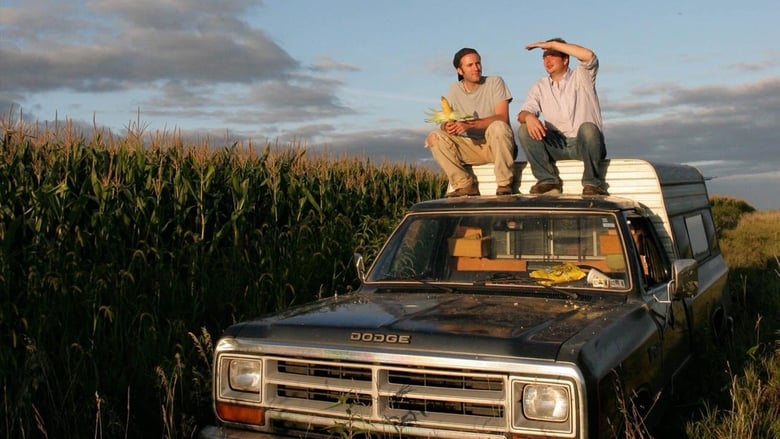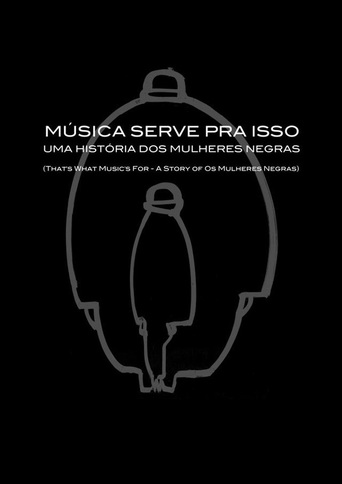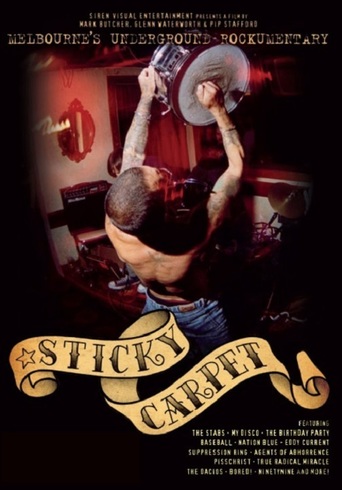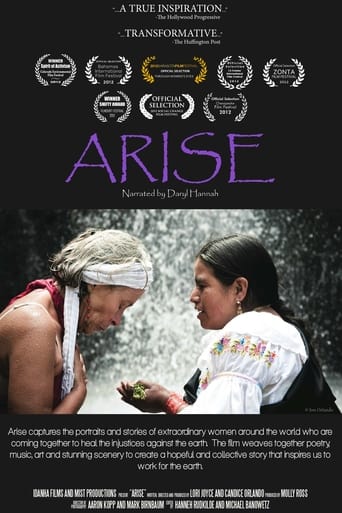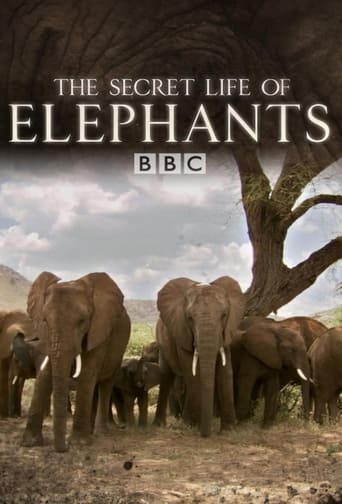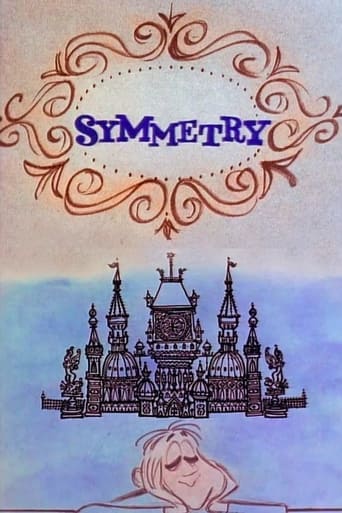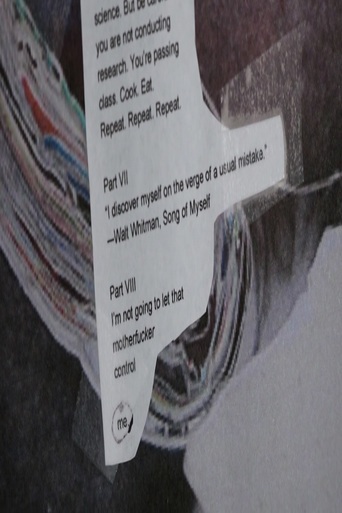King Corn (2007)
King Corn is a fun and crusading journey into the digestive tract of our fast food nation where one ultra-industrial, pesticide-laden, heavily-subsidized commodity dominates the food pyramid from top to bottom – corn. Fueled by curiosity and a dash of naiveté, two college buddies return to their ancestral home of Greene, Iowa to figure out how a modest kernel conquered America. With the help of some real farmers, oodles of fertilizer and government aide, and some genetically modified seeds, the friends manage to grow one acre of corn. Along the way, they unlock the hilarious absurdities and scary but hidden truths about America’s modern food system in this engrossing and eye-opening documentary.
Watch Trailer
Free Trial Channels
Cast


Similar titles
Reviews
Very very predictable, including the post credit scene !!!
Good start, but then it gets ruined
Brilliant and touching
The biggest problem with this movie is it’s a little better than you think it might be, which somehow makes it worse. As in, it takes itself a bit too seriously, which makes most of the movie feel kind of dull.
This movie is a great movie in getting down to the core of what is really going on in the food that we eat. As American's we tend to sit back and trust what food vendors are providing us. However, after watching the film one might not be as happy or trustworthy about what the food vendors are doing to the food that we are ingesting. What I love about this movie is that they take such complicated material and break it down so that the average person can understand what is going on. They do this by using demonstrations, actually doing something, pictures, graphs, and interviews with individuals. This movie will really get you to start thinking about what you are eating, why you are eating it, and how you can start to make a change.
The film "King Corn" is a strong piece of cinema. It gives us a deep look at corn. Yes, corn. Many might think that something as simple as corn can hold no real relevance to the world, or any of its people. This film proves otherwise.It follows Ian Cheney and Curt Ellis, as they are followed by director Aaron Woolf and his crew. After a scientist analyzes hair samples from both men, they find something pretty startling- their hair is made of corn? (Well, not exactly. But it's in there.) They go on an odyssey, traveling to Iowa, in order to grow an acre of corn their own, and trace it from first being planted, through its growth, to the harvest, and finally, to how it's processed and how it ends up in our hair.The film is remarkable in its accessibility. Both of the lead on-screen talent are very engaging and likable. The film also tends to shy away from putting its foot down in the matter. It doesn't say "This is good" or "This is bad", or "blame this person or that organization" it merely presents the evidence and the reaction of Cheney and Ellis to said evidence and the situations that occur. It remains in the middle to an extent, and while it does present the modern corn industry in a negative light (rightfully so, I might add), it isn't too preachy about it. In addition, the filmmakers really try to make the documentary easy to watch and to comprehend, using simple tactics and design to illustrate some of the more abstract points, especially the political jargon and dealings that are brought up. Graphs and stop-motion animation are used to drive home these tough-to-understand concepts in a unique way. When talking about how political farming programs help larger farms grow and can negatively affect smaller farms, rather than seeing something as complex as the talk going on, we see stop-motion-animated Fisher Price toys scurrying about, visually representing what the narration is explaining. It was endearing, and actually quite effective in driving the point home. Quite brilliant, and without spoiling anything, especially touching when a poignant scene later on adds relevance to these stop-motion images.The film also takes a hard look at the negative side of some of the impacts and bi-products of the corn industry. It does show us how government farming programs encourage the mass production of corn by industrial farms. The sheer scope of this industry rewards the larger industrial farms, but over time seems to phase out and eliminate smaller farms, in essence nearly destroying the classical image of the family farm. It is also explained that corn isn't just used for consumption by humans- it's used for other purposes, such as feeding livestock that will eventually be slaughtered for consumption. However, the corn-based feed negatively impacts the farm animals, who aren't "built" to consume such foods, and harms the value of the meat, by dramatically increasing the fat content. Corn is also used for making artificial sweeteners (such as the infamous High Fructose Corn Syrup, which holds virtually no nutritional value), which are used as a sugar substitute in many different foods. The sheer volume of High Fructose Corn Syrup, while making foods cheaper, is arguably also poisoning people. It's financial perks are matched or even outweighed by the health problems it can cause. The parts of the film dealing with HFCS are deeply troubling. I find it hard to stomach that this topic doesn't get more coverage than it already does- our cheaper foods are killing us.For all that "King Corn" does properly, the film does do some wrong, though. It could be argued that a large portion of the movie is a moot point and ultimately pointless in the end- and that is Ellis and Cheney's growing of the acre of corn. While it was a nice statement and image, it is revealed that tracking their corn is a fruitless effort- it can not be tracked due to the sheer volume of corn harvested and processed. And so, Ellis and Cheney are left to mathematically figure out what likely happened to their corn. (They likely knew up front before planting that the corn would be untraceable, it seems unfathomable that they wouldn't have known) While seeing them grow their corn was interesting, the fact of the matter is, it could have been cut down somewhat (I would argue it is important enough to keep in the film, but at least five minutes could have been trimmed from the segments involving their planting, caring for and ultimately harvesting the plants), and the spare time used to further educate the audience on the subject. It just felt like a failed potential to myself.Also, the film does hit a few moments where everything dulls down for a couple minutes, and it drags on, but then again, this seems to happen with most documentaries I've seen, so I can forgive it.But these errors really don't detract much, they're more nit-picks from me, on how I would've changed the movie, and I will say, they didn't really affect my love for everything else. I adored this documentary!I felt "King Corn" was a great educational piece. It teaches much, and is also a fun experience. I give it an 8 out of 10.
If you've read Micheal Pollan's book "The Omnivore's Dilemma: A Natural History of Four Meals" the issues addressed in this movie will be more than familiar. The tone, however, is rather younger, more superficial, and lighter. Both are quite enjoyable, and highlight problems most folks would rather not think about. I'd suggest you read the book first, then watch the movie to get the aroma and visuals. It would also be nice if other "reviewers" would own up to a disclosure such as this one, now common and expected, for example, in reputable medical journals: I am not employed by, nor do I have any financial interest in, any of the industries discussed or affected by this movie.
KING CORN: A REVIEW The film King Corn is a propaganda piece and full of misleading statements.First, the hair test that Dr Macko uses to estimate the percentage of corn in the diet, while useful for what it was intended, gives somewhat misleading results in this application. First, a little background on this test.The test Dr. Macko is using to differentiate corn from other plant materials in the diets of humans and livestock utilizes the fact that a class of plants, called C4 plants, which includes corn, preferentially take up a different proportion of these two isotopes of carbon to make their tissues than do the class of C3 plants, which comprise the vast majority of other plants including forages.. These ratios of isotopes of carbon continue on in the food chain, and their proportions can be measured in the hair to determine which proportions of plants have been consumed, either C3 or C4 (assumed in the film to be corn).What this film does not disclose however, is that livestock consume a number of other C4 plants in their rations other than corn. Sorghum is also a C4 plant. It is grown extensively throughout the West in dryer states such as Texas, Oklahoma, Kansas, Nebraska, and parts of Colorado. In areas where it is grown it is used almost exclusively for livestock feeding. Thus, the above test would be incapable of differentiating an atom of carbon as coming from livestock fed corn or sorghum.This same rationale would also apply to millet, which is also a C4 plant used for livestock feeding, grown in the northern central states, chiefly the Dakotas and Nebraska.When we turn to plant foods directly consumed by humans, we also find a problem with the test used. Sugar cane is also a C4 plant, and thus the sugar derived from it would be indistinguishable from corn in whatever form consumed as far as the hair test described.These factors thus makes this test somewhat unreliable as a measure of exactly how much corn is in our diet, either directly or in the diets of the livestock we consume.Next, I want to turn to their description of cattle feeding, and their reporting of its effects. It is somewhat disappointing that the makers of this film did not avail themselves of the opportunity to educate themselves as to the facts regarding the cattle feeding industry when they had a good opportunity to do so. First, as to their claim that feeding corn causes death within 120 days. Curiously, their reference for this appears to be a random passer-by they met during filming. The reality is quite different.The grain or energy component of the ration is balanced with whatever grain happens to be available and most cost effective locally. In the Mid-west that would be corn. In other parts of the western US, sorghum, millet or barley would be the energy component of choice, and in the eastern US soft wheat would often be the feed of choice.Dairy cows are also fed a high concentrate ration required for high milk production. They are feed high rates of grain over many milking cycles with obviously no early death, as a high value dairy cow obviously would not be fed such high grain diets if it would lead to early death.Now let us turn to the corn plant itself, which in the film is strangely attacked and demonized. One of the most reprehensible parts of the film was the interview with the Harvard professor, who repeatedly made statements to the effect that corn is a non-food, is nutritionally empty, and has been deliberately bred to be so. This is quite misleading. This Harvard professor should know quite well (or maybe he doesn't ?!) that corn, along with all plants domesticated by humanity over many millennia have been extensively selected for different varieties used for different purposes.In the case of corn, our North American native grain, it consists of a number of varieties hand selected both during prehistoric times and by many generations of traditional farmers. We currently have 4 major types; sweet corn, used for eating fresh and canning, flour corn, used for milling into corn meal for human consumption, the well known popcorn, and dent corn, also know as field or feed corn.Field corn has been selected specifically to produce the energy source or carbohydrate portion of animal feeds.Corn is one of the handful of staple grains producing the main food source for human beings. These grain staples, including corn, wheat, rice, barley and sorghum, produce collectively 90% of the calories required by human beings worldwide. World civilization as we know it could not exist without these staple grains. To say that carbohydrates, by far the greatest requirement in the human and animal diet and which are used for energy production, are "empty" calories is certainly a misstatement. There are no "empty" calories or "bad" foods. There are only good and bad diets. To expect that one food would have all the components of a healthy diet is naive. This is the reason all responsible nutritionists continually speak of eating a variety of foods.In summary, to think that farmers here or in other countries will stop planting corn is quite unrealistic. We have the lowest grain supplies worldwide today since the last days of World War II. We will be planting more corn going forward, or at least we will try.I salute these young college people for their idealism, and their concern for the HFCS issue. I can only say that their credibility on this issue would not have been damaged quite so badly if they had stuck to the facts.


